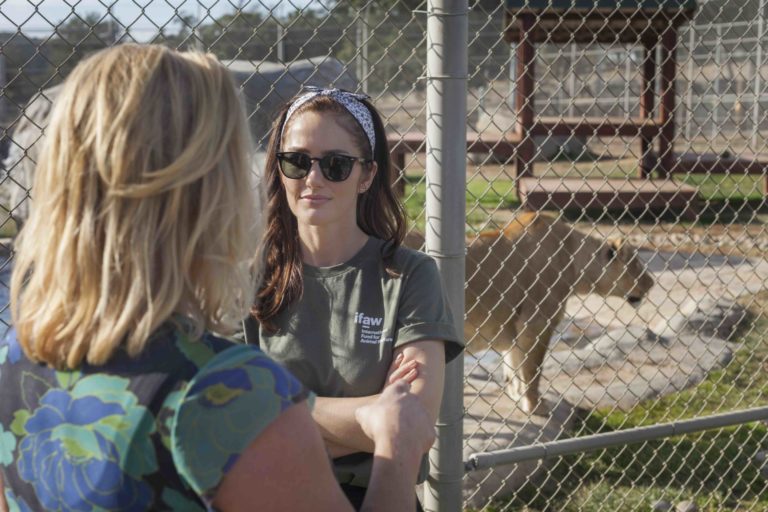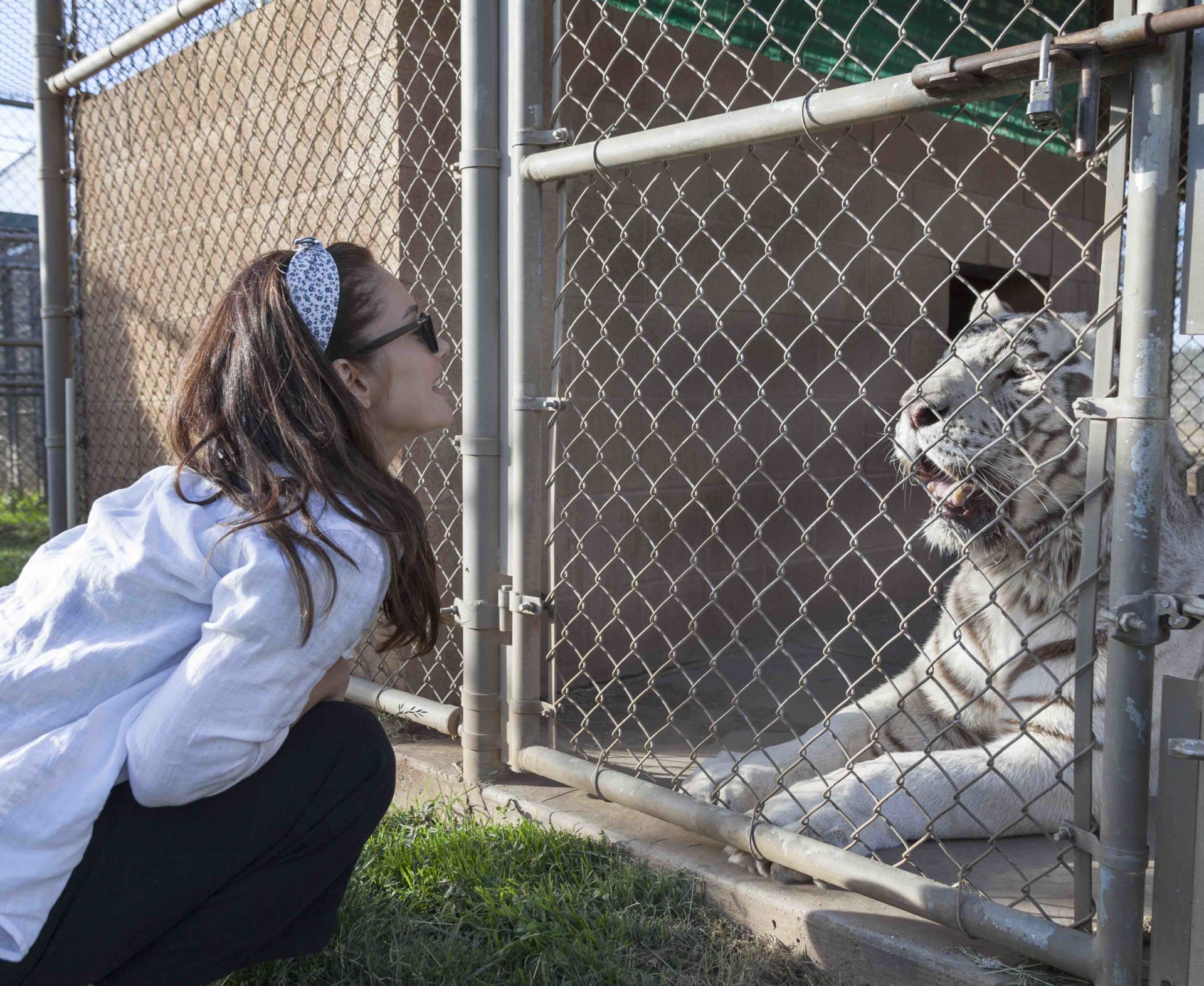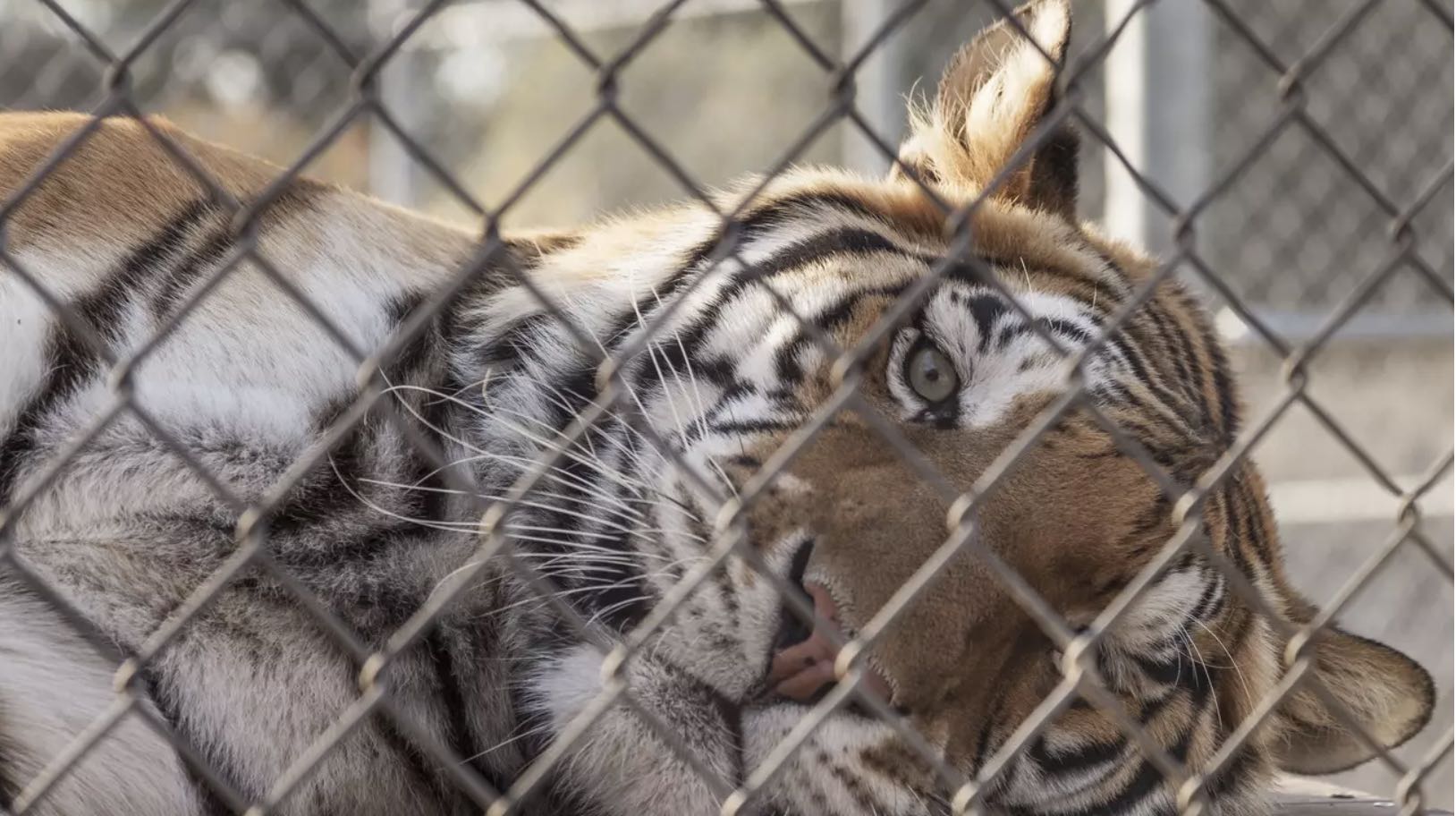Like everyone in isolation at home perusing what to watch on Netflix I came across “Tiger King” and was instantly hooked. The most shocking part to me, though, wasn’t the eccentric characters or the sensationalism — it was the missed opportunity to tell the story of the real issue: big cats in captivity. These beautiful creatures face lifetimes of pain and suffering. We are the cause, and can be the solution.
The treatment of big cats like tigers and lions in the U.S. is an issue that I have been passionate about for many years. Right now, there are more tigers in captivity in the United States than there are in the wild. It is stunning — and sadly, it is a fact. A fact that is almost inconceivable — and why I have chosen to lend my voice to try to change this, working as an ambassador alongside IFAW, the International Fund for Animal Welfare, on this very issue.
Earlier this year I took my second trip to a true big cat sanctuary to hear the stories of and lend my voice to animals in need. Stories ranged from big cats previously owned by celebrities, musicians, and ill-prepared “private owners” — to some who had never known life outside of a tiny cage where they were used only for breeding cubs. The stories in each and every case were heart-shattering. The animals I saw at these qualified sanctuaries, which are accredited by the Global Federation of Animal Sanctuaries (GFAS), are sadly among the very few who are rescued from the heartbreaking circumstances in which most U.S. big cats live.

Driven largely by inhumane and unsafe roadside zoos that claim to be animal sanctuaries, big cats bring in cash for unscrupulous businesses like some featured in “Tiger King.” Torn from their mothers immediately after birth, the cubs are used as photo props for “cub selfies” and paid “cub petting.” Often, the handler makes a really compelling case about how promoting awareness and getting “up close and personal” with the cub is helping conservation. But it’s not. Not at all. Since no cub remains small for long, the animals are bred over and over again (think of puppy mills) to keep the supply of newborns — and the accompanying cash — coming. When they are no longer profitable, they’re often sold into the pet trade or to other roadside menageries to live out their lives deprived of veterinary care, proper nutrition, much-needed enrichment, and all other basic needs. Often, they are just killed.
As part of the effort to drive change, I’ve chosen to be vocal about my support for critical federal legislation like the Big Cat Public Safety Act (BCPSA). This bill will make public interactions with big cats — including the cub handling that drives incessant breeding and enables so much suffering across the U.S. — illegal. This is an essential step toward immediately protecting so many animals from a life of misery.
The bill doesn’t only protect the animals though — it protects the public as well. The Fraternal Order of Police came out publicly in support of the bill as they recognize the dangers of big cat private ownership to first responders. This type of danger is not something they can adequately prepare for, nor should they be expected to. Nothing better demonstrates this than the 2011 tragedy in Zanesville, Ohio which made global headlines. Dubbed the Zanesville Massacre, 49 animals including tigers, lions, and mountain lions, had to be killed by law enforcement when a private owner set his vast collection of exotic animals free. The trauma still haunts first responders to this day and is another reason why I urge you to please contact your Members of Congress and tell them to support the BCPSA.
I also encourage you to support true sanctuaries. These are sanctuaries that do not breed, allow public contact with, sell, or otherwise exploit the animals that they take in. Remember — if you’re ever allowed to touch an exotic cat, you are not at a true sanctuary and that animal is not being properly cared for. Steer clear of places that perpetuate a lifetime of suffering for these animals. They deserve better. Fortunately, true sanctuaries are finally gaining strength as they have recently joined forces to form a legitimate sanctuary community called the Big Cat Sanctuary Alliance (BCSA) to advocate for positive change and to end the cruelty.
There’s such an easy solution in my opinion — we just need to value animal lives over human entertainment. It’s that simple.
Notwithstanding the shocking drama outlined in “Tiger King,” the message that I hope people will ultimately take away is not the human tale, but the animal one. The message is that we must immediately do something about the way iconic big cats are treated and traded in the U.S. The public, as consumers, need to be aware of what is really going on behind the scenes as they are being lied to by many players in this industry. There’s such an easy solution in my opinion — we just need to value animal lives over human entertainment. It’s that simple.

Editor’s Note: The opinions expressed here by Impakter.com columnists are their own, not those of Impakter.com — In the Featured Photo: Actress Minka Kelly at Lions Tigers & Bears Sanctuary (2019). — Featured Photo Credit: ©IFAW/Alexis Embrey











